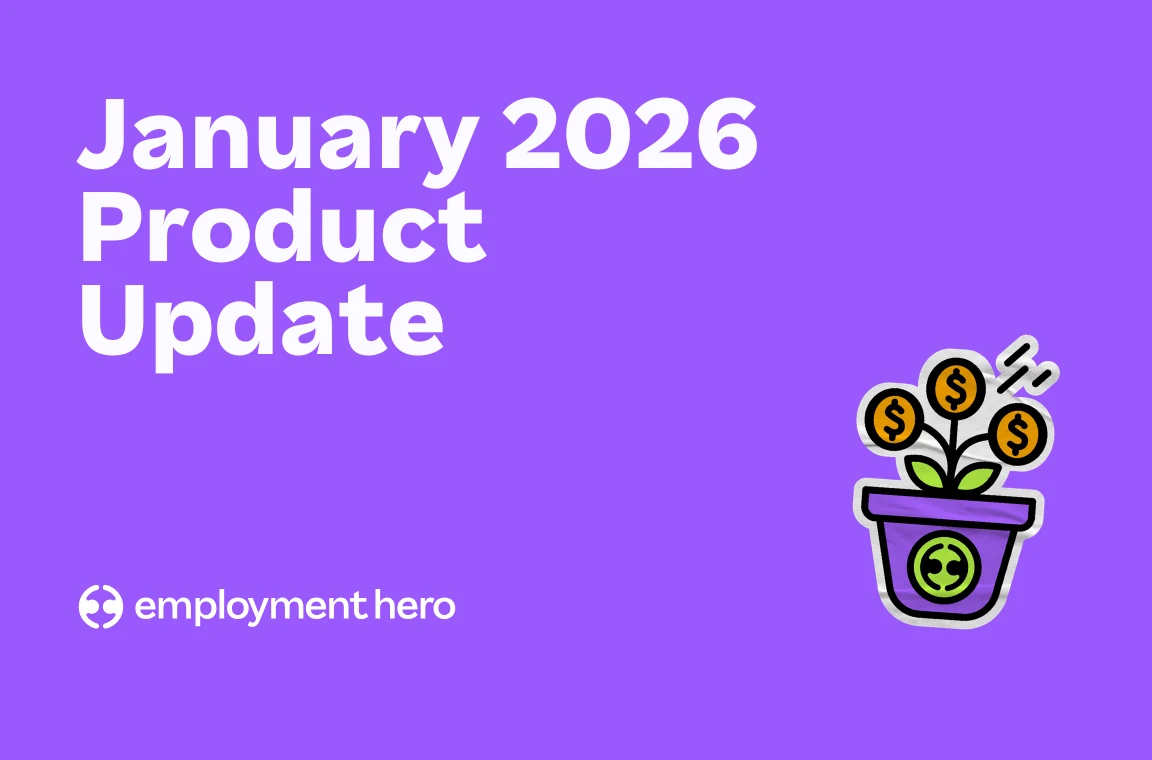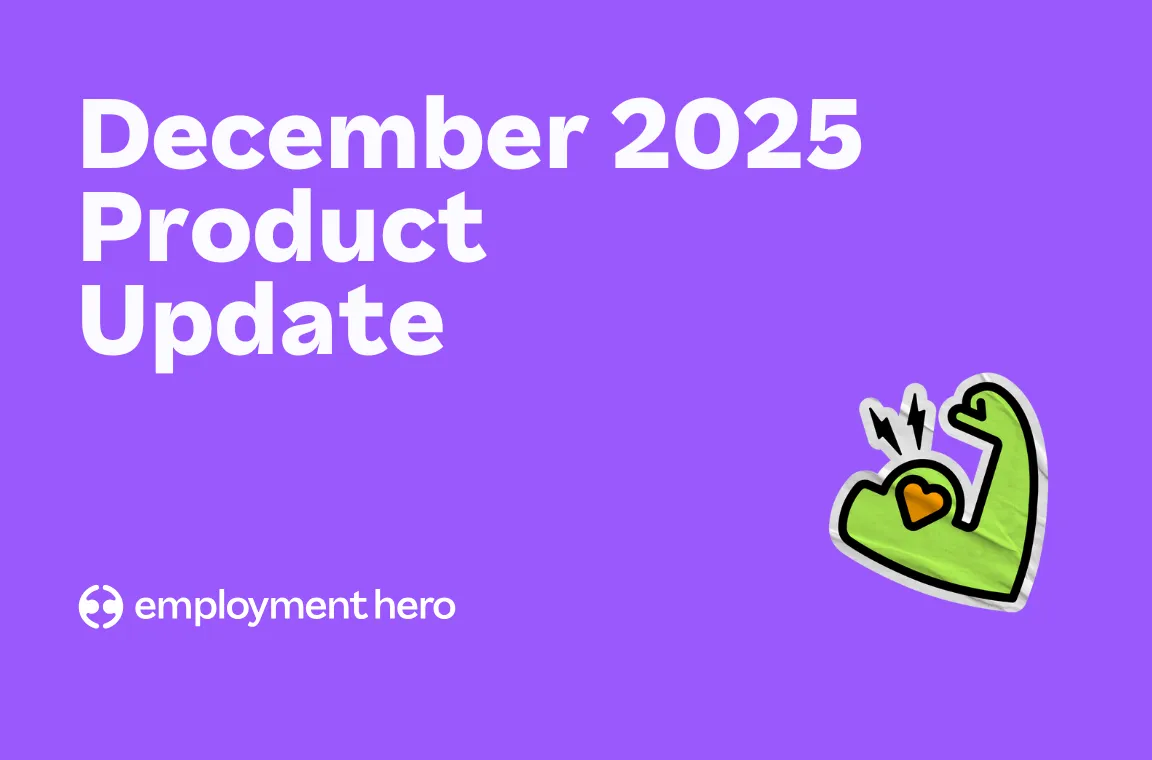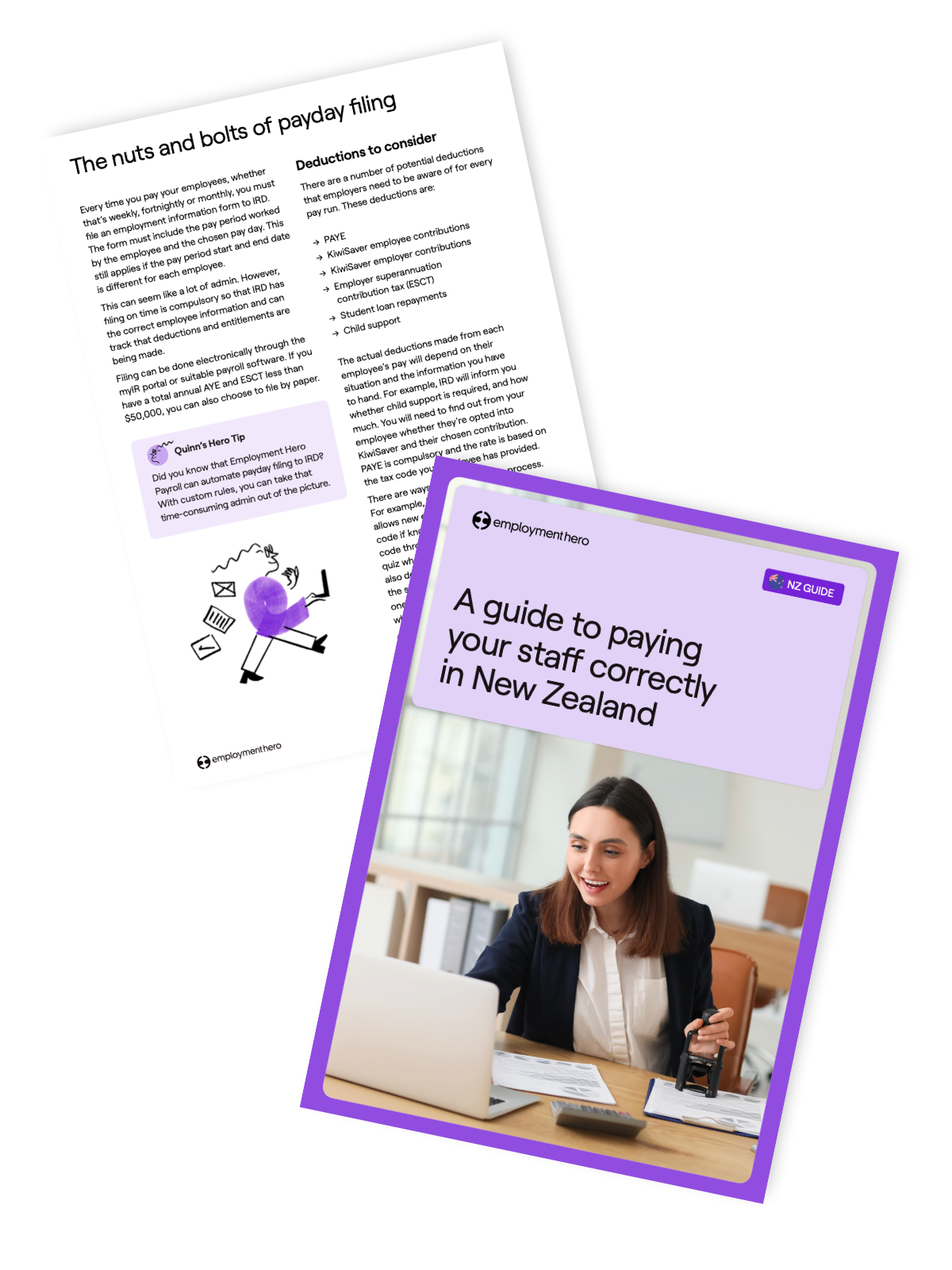In-house payroll vs outsourcing: Which is best for SMEs?
Using a payroll platform to bring payroll in-house can be transformational for your business.

Payroll is an essential part of every company’s operations and a foundational part of employee engagement. If you have a well-oiled payroll process, your staff will love you, but if you run payroll inconsistently, you risk major upset.
Since bookkeeping and payroll processing is an admin-heavy task, it’s understandable that some business owners believe it’s easier to use outsourced payroll. However, bringing this process back in-house can also give you greater control.
What a company ultimately chooses depends on a number of factors. We’re here to make the decision between in-house and outsourced payroll a little easier, by breaking down the benefits of both.
What is in-house payroll?
In-house payroll is when a company has a team or individual in their organisation who is in charge of running payroll.
What are the benefits of having in-house payroll?
Bringing payroll in-house can be a real cost-saver for your business, but it has to suit your set-up and preferences. Here are just a handful of scenarios where in-house payroll could be the right choice for you.
You’d like to have greater control over the payroll process
Do you need to change a payroll rule? Do you need to enter a new employee into the system? Are permissions of pay reporting changing hands? When you’re outsourcing payroll, these changes could take some time to take effect. You’re waiting on someone external to complete what might be urgent changes.
With in-house payroll, you can make instant changes to your processes and start actioning them right away. It takes the middleman out of managing your payroll.
You’re interested in utilising technology
These days technology can do a lot of things, and one of them is supporting payroll. Payroll software is a great way to minimise the time that your in-house team spends on payroll. It can also provide greater clarity on the trickier parts of payroll, and automate a number of processes, including leave calculations and taxes.
If you’re thinking about bringing payroll in-house but are concerned about the time-cost, introducing payroll software can be a great way to provide extra support.
You’d like to instantly and confidentially access important data
When you’re outsourcing to a payroll provider, important employee data is shared with an external company to manage.
This can be challenging when urgent reporting is required, or an employee needs to access their details quickly. If the data sits directly within your company, it can save time and stress for your administrative and payroll team.
You want to connect timesheets and rostering
By using technology like Employment Hero’s payroll software, you can easily connect timesheets and rostering directly to payroll services. With everything living on the same platform, approved timesheets automatically feed through to payroll. Rostering is also a breeze, with templates, dynamic rostering and budgeting tools.
Integrating these critical HR processes is another way that you gain more control over your business operations. With software solutions that speak to each other, you can easily manage your employees’ time and payment from one single source of truth.
If you’re already using payroll software but finding it tricky, it might be time for a change. Take a look at our guide on five simple steps to changing payroll software.
Employees want control over their own information
If you’re in charge of employee details, you can find yourself dealing with a lot of requests for changes and edits. From home addresses to bank details, every small change takes a lot of time and effort for everybody.
When you use a system like Employment Hero Payroll, employees can enter their own payroll details into the self-service platform. They can easily view and manage their personal details, making updates as their life circumstances change.
You’d like to control reporting
Is your company growing and evolving? Maybe you’re looking to do a detailed audit of your finances and need specific information to do so?
Controlling your own payroll reports can give you back the flexibility to do things your way. You can pull reports instantly, easily sourcing any information you need.

What are outsourced payroll services?
Outsourced payroll services are when you hand over payroll management to an expert. While they’re not a part of the business, they can take over all the manual tasks that take up critical time.
What are the benefits of outsourcing payroll?
If you suspect that the time you’re dedicating to running your payroll in-house is affecting your bottom line, or you’re struggling to keep up with the constantly changing regulations, it might be time to outsource. We’ve outlined some common scenarios where outsourced payroll would suit you better than in-house payroll management.
The team are spending too much time on payroll tasks
Ask yourself how much time you’re spending on payroll and tax calculations, keeping on top of payroll compliance, cross-checking details and training new employees to use your tools. Then there’s time spent updating HR information in the system, including new hires, leave and award information.
If your business is growing, these tasks will only take up more and more valuable time. Outsourcing payroll through services such as Employment Hero’s Managed Payroll can make a huge difference when you’ve got far too much on your hands.
You’re finding that payroll costs are too high
IT infrastructure isn’t cheap, especially when you include staffing costs for managing a secure payroll platform. If you’re looking at cost per head, an outsourced payroll model could be the right move (and might not be as expensive as you think).
Just make sure you are careful when selecting payroll services and choose a tried-and-tested team like Employment Hero. Incorrectly paying people can come with hefty fines that can turn your hard-earned investment into a giant expense.
You’d like more focus time for running and growing your business
If you think about it, you already outsource a bunch of critical functions – your internet, your accounting software and maybe your inventory management. It’s understandable why you would leave your payroll to the experts, so you can get on with what you’re supposed to do.
If you’re spending time training up new staff, chasing up timesheets and running reports, you’re not focused on revenue-generating activities, increasing sales or writing your business plan. And all the other people who were helping to manage payroll? They’ll also get time back to focus on their own areas.
You’re struggling to keep up with compliance
Compliance. Every business owner’s favourite word. Have you looked at each detail in your workplace agreements? Are you on top of the latest legislation? Don’t forget, there’s leave entitlements and tax obligations to consider.
If all this makes you shiver, you’re not alone. There are often significant penalties for any errors and as a business owner, it will be your legal and financial responsibility. Outsourcing payroll means that you can be sure that an expert is taking the lead.
You aren’t sure that your data is secure enough
Do you know if your payroll data is prone to hacking? It’s not just the banks that are at risk anymore. Your payroll system has sensitive identity information that cybercrime would just love to get their hands on. And it’s not just external threats. Your data can be at risk from internal staff too if the system isn’t adequately protected.
A good outsourced payroll provider will have secure payroll systems and processes to keep your data safe and give you one less thing to worry about. If you’re considering outsourcing payroll, check that their systems are:
- Hosted on secure servers
- Password protected
- Able to encrypt your data
- Hosted in the cloud for secure access
If you’re curious about how you’d start outsourcing payroll, you can dive into our expert guide.
The wrap-up
Whether you outsource payroll or bring it in-house, the choice totally depends on your business and capabilities. You might prefer the autonomy that comes with in-house payroll or love the idea of leaving payroll entirely to someone else. Whatever you choose, make sure it works for you and your team – you’ll reap the benefits by making payroll a breeze.
Here at Employment Hero, we can support your business with either in-house payroll or outsourced payroll.
If you’re looking to go in-house, Employment Hero Payroll can empower your team to complete pay runs in just a few clicks and streamline crucial payroll data. With automated leave and tax calculations, it can also give you confidence in your compliance.
If you’d prefer to outsource your payroll, our Managed Payroll service handles everything for you. You can feel confident that your payroll is in the hands of experts and that no essential compliance tasks will be missed. If your business is scaling fast, our service will be able to support you as you grow.
To find out more about our payroll software or managed payroll service, book a demo with one of our business specialists today.
Related Resources
-
 Read more: Product Update: January 2026
Read more: Product Update: January 2026Product Update: January 2026
Welcome to the January 2026 product update from the Employment Hero team. We’ve got lots to share around Custom Forms,…
-
 Read more: 7 Ways Employment Hero Can Help You Retain Top Talent
Read more: 7 Ways Employment Hero Can Help You Retain Top Talent7 Ways Employment Hero Can Help You Retain Top Talent
Contents Retaining top talent in 2026 is about more than providing a positive workplace culture; employees are looking for jobs…
-
 Read more: Product Update: December 2025
Read more: Product Update: December 2025Product Update: December 2025
Welcome to the December 2025 product update from the Employment Hero team. We’ve got lots to share around Custom Forms,…























